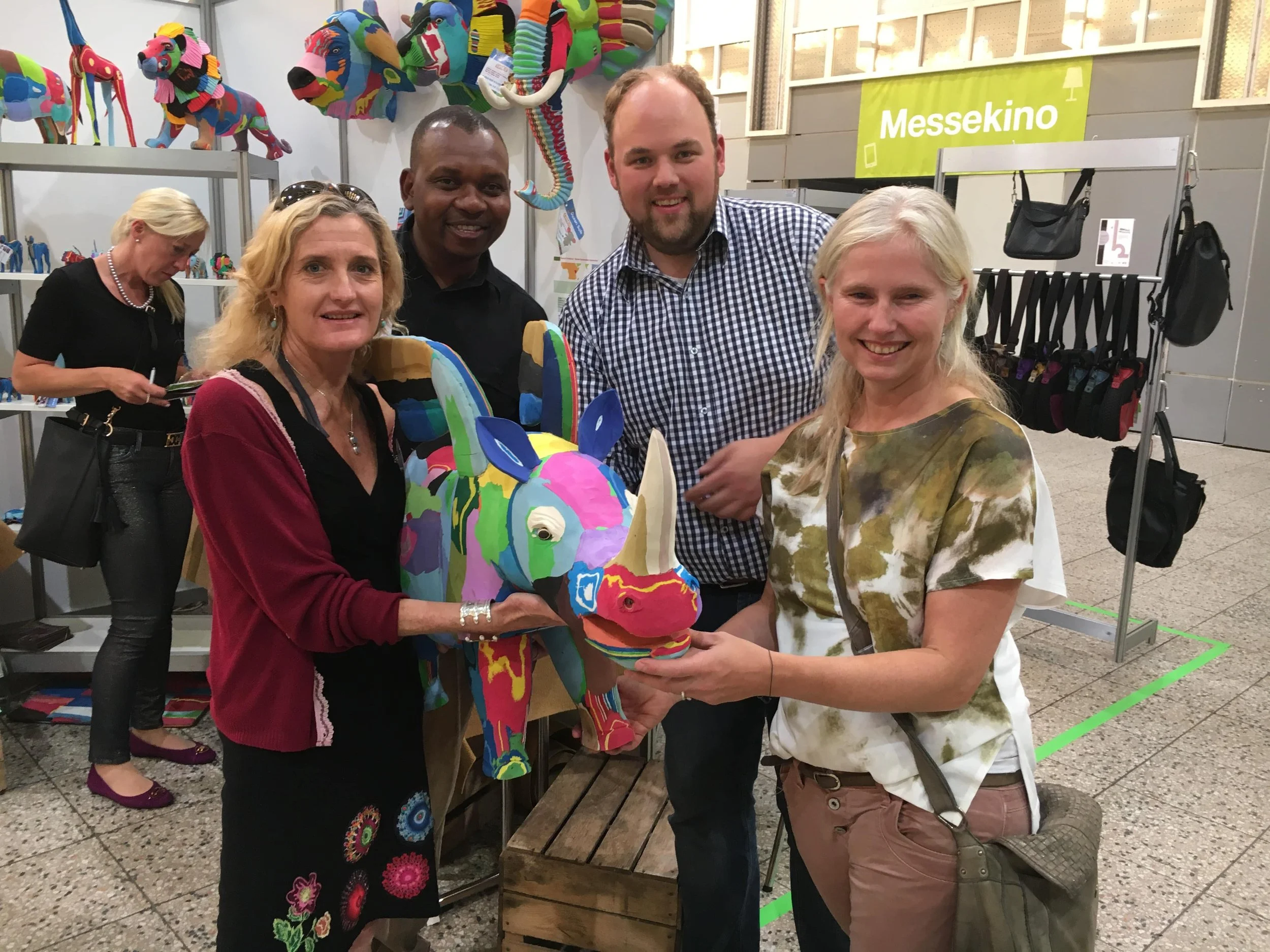Julie Church
To celebrate World Ocean Day, Meet the Leader speaks with Kenyan marine-biologist-turned-entrepreneur Julie Church, founder of Seas4Life.
Julie Church is founder and CEO of Seas4Life, a trailblazing marine conservation and eco-tourism company based in Kenya. Seas4Life offers luxury marine experiences in the Indian Ocean that blend conservation with adventure. Its signature sea safaris and once-in-a-lifetime experiences such as participating in South Africa’s Sardine Run (aka ‘The Greatest Shoal on Earth’) have an educative element as well as helping boost the environment, with 70% of Sea4Life’s profits directed towards marine conservation.
Before launching Seas4Life in 2019, Church spent 25 years working as a marine biologist, including many years at wildlife charity WWF. It was here where she founded Ocean Sole in 2005 – a social enterprise that has recycled over 500,000 dirty, discarded flip-flops which have littered the Kenyan shoreline, turning them into ornaments and jewellery. The project has since helped create jobs plus funded beach clean-ups and community projects.
Growing up in Kenya the urge to protect the environment has always been part of my DNA. I even gave a speech on sustainability at my 21st birthday party.
I was once gored by a buffalo. I was looking for butterflies with a camera when suddenly a buffalo charged at me from 50 metres behind me. The buffalo gored me twice, breaking my pelvis and an arm.
The flying doctors came to my rescue, but my troubles didn’t end there. I flatlined a few times before arriving in hospital. A day later, my kidneys collapsed and I was in an induced coma for two weeks, followed by six weeks of dialysis. It took me around a year to recover.
Despite nearly killing me, I still respect buffaloes. We even have them on my farm. However, if anything runs behind me today, it does scare me.
One of my proudest achievements is working on the Kiunga Marine National Reserve Project as part of the WWF. We ran programs on turtle conservation, education and raising awareness with dugongs, as well as collecting data on reefs. During my time there, it went from being one of the least celebrated WWF projects to one of its most well-known.
The idea for Ocean Sole came from Kenyan women who were making cushions out of discarded flip-flops. Their kids would be making toy boats out of the flip-flops too. I. just looked at this concept and thought ‘Why can’t we make marine animals out of them?’
Today Ocean Sole is still going strong. We’ve created everything from life-size giraffes for Italian fashion shows to life-size humpback whales.
Much tourism today lacks the connection with the people and environment they’re visiting. In Kenya, many tourists visit the Masai Mara and Serengeti, before sitting by the swimming pool. Seas4Life is about offering them more than that: we want to offer experiences that bring a connection to the ocean.
The sardine run [when billions of sardines migrate along South Africa’s coast, attracting predators] is one of the most thrilling natural spectacles on Earth. Sharks, dolphins, humpback whales, gannets: all come out to feed on these sardines. With Seas4Life, you can get in the water and snorkel with them. It’s a must-do for anybody who wants to be up close and personal to where the predator meets the prey.
As humans, we owe everything to the ocean. Every breath we take, every piece of food, every raindrop, everything is dependent on our oceans.
Sadly, much of marine life is only valuable when it’s dead. A fish that’s dead is more valuable to fishers than one that is alive. If the ocean was managed properly, it could bring us much more money through ecotourism and the blue economy. We need more protected areas – life comes back much quicker than we think.
Humans are the problem with marine devastation, but we are the solution too. [Working in sustainability] we always have a point of view that money is the problem. I’m currently in Dubai. If humanity can achieve turning a bowl of sand into one of the world’s wealthiest cities, we can easily address the problems of our own home.
We need to start charging tourists a ‘blue tax’. So many nation’s economies depend on the sea: if visitors paid a simple $2 tax on arrival, it could help finance ocean projects.
Engaging local communities is the future of ethical travel. In Kenya, I have a friend who runs walking safaris with local Samburu guides. Because of their wonderful expertise, these tours have proved hugely popular. They used to walk 3,000 acres – now, thanks to local communities, they are walking a 20,000-acre area which is shared ownership.
We work with former turtle poachers at Seas4Life. But now they are turtle conservationists. If you’re living on the poverty line in Africa, killing turtles is no big deal: it’ll make you money. Before, these poachers weren’t recognised – they were just surviving. But now working as data-collecting conservationists, they are revered as heroes and leaders. We need to show local communities what can be achieved: that’s where storytelling really plays its game.
Managing impact-led projects is hard. The work can be quite dreamy, with big, lofty goals. But you need a big business mindset to come in and say, ‘We need to make money here’. You’ve got to have lots of resilience and be ready for the setbacks.
My favourite saying is from Audrey Hepburn. She once said, “Nothing is impossible. The word itself says ‘I’m Possible’” That’s very true.




